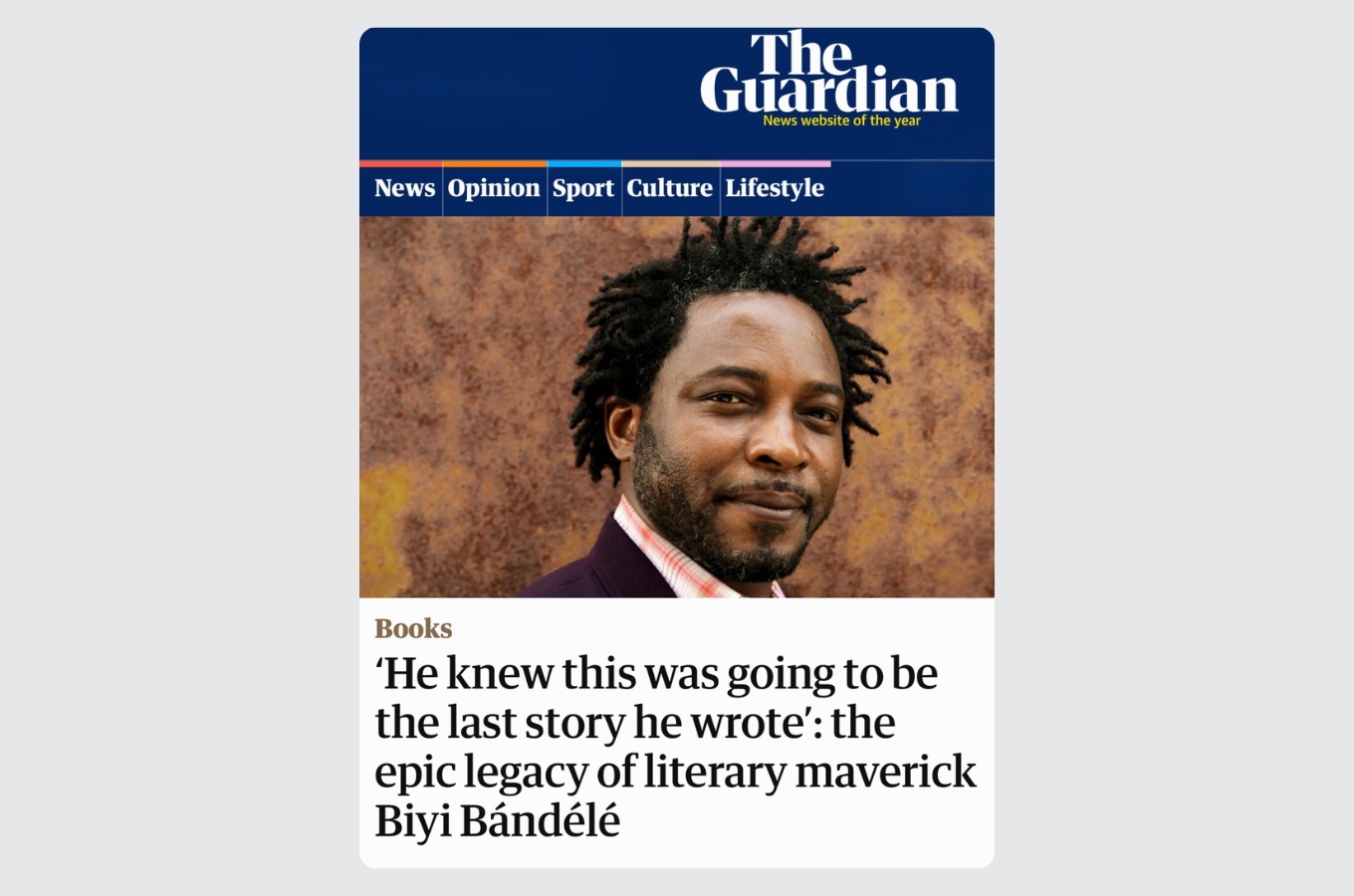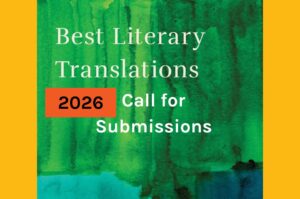
Two years after his death and with the release of his final book, Yoruba Boy Running, The Guardian honors the life and legacy of Nigerian novelist, playwright, and filmmaker Biyi Bándélé in a profile by Alex Clark.
The profile reveals that Bándélé submitted a revised version of his final manuscript on August 6, 2022, and took his own life the following day.
We’ve pulled out some of the beautiful remembrances and reflections from his daughter Temi and other friends and colleagues featured in the profile.
[To see how Bandele impacted the African literary community, take a look at the farewell messages from 100 African writers sharing their condolences and memories of the beloved artist.]
On His Final Manuscript
“He knew it was going to be the last words that he was writing. And you can really feel the energy of that; he knew that this was going to be the last story that he wrote. And he made sure that we knew that it was finished, and he made it very clear that he wanted it to be published.”
— Temi Bándélé
Temi believes that Yorùbá Boy Running was both the culmination of Bándélé’s work and the beginning of new conversations he hoped would continue. Set in 19th-century West Africa, the historical novel reimagines the life of Samuel Àjàyí Crowther, a prominent Nigerian clergyman and linguist. Temi assisted her father with research for this last book.
On Bándélé’s Unique Writing Style
“There’s something about his writing. It’s sort of maverick: it knows the rules, but it wants to disobey the rules to see what happens.”
— Paterson Joseph, Actor and Novelist
Paterson Joseph, who starred in Bándélé’s 1993 television play Not Even God Is Wise Enough, describes Bándélé’s style as one that played with traditions and form, producing something bold and unique.
On Identity and Global Perspective
“It’s his searing intellect and his inability to want to compromise on form or message. When many of us were very specifically black or very specifically British, he was really global in that he was Nigerian and he was British and he looked at the world in an expansive way, so that identity wasn’t a kind of narrow binary.”
— Kwame Kwei-Armah, Friend and Artistic Director
Kwame Kwei-Armah highlights Bándélé’s expansive understanding of identity, viewing it as dynamic and inclusive of new experiences.
On His Connection to Nigerian History
“Pre-civil war, post-independence Nigeria was a very specific area that Biyi was interested in; it spoke to him quite profoundly. The philosophical, intellectual dynamics that were at play at that time in Nigeria influenced him, and he was very excited to explore that.”
— Chiwetel Ejiofor, Actor
Chiwetel Ejiofor, who starred in Bándélé’s adaptation of Half of a Yellow Sun, reflects on Bándélé’s fascination with this period in Nigerian history, a time rich in complexity and intellectual depth.
On His Legacy of Multiplicity
“That’s something that’s struck us lately, going back through the story of his life, and going back through the photographs: all the different identities that Biyi embodied. And I think that’s something that he always wanted to impart to Temi, that everything’s possible.”
— Andrea Calderwood, Producer and Temi’s Mother
Andrea Calderwood reflects on Bándélé’s embrace of multiple identities. She sees this focus on multiplicity in Yorùbá Boy Running and notes his encouragement for Temi to live with curiosity and a sense of endless possibility.









COMMENTS -
Reader Interactions